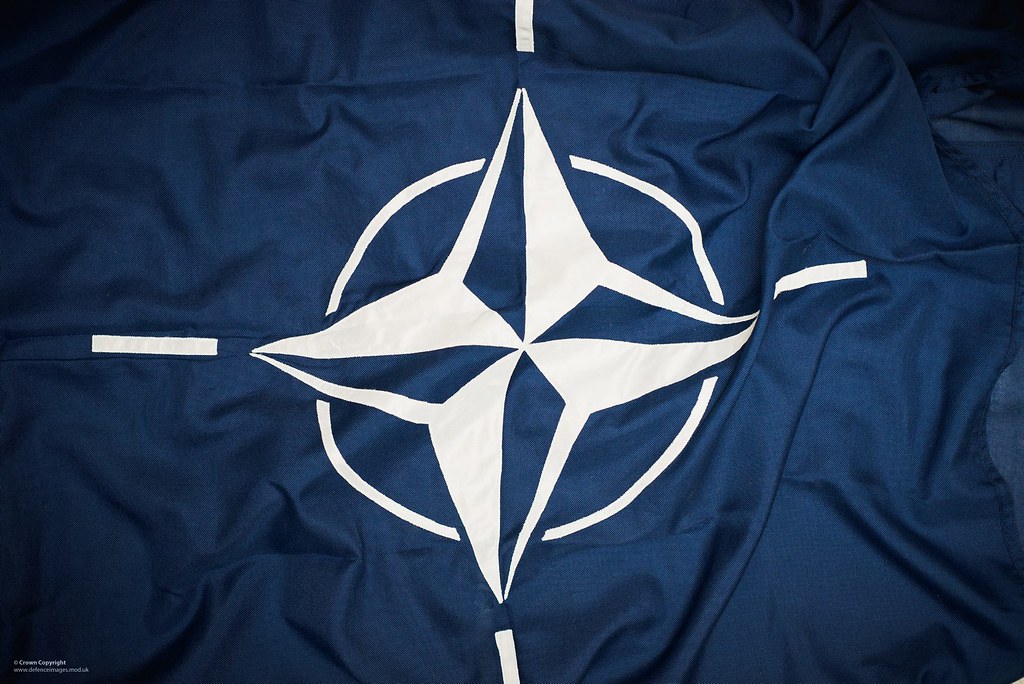Strengthening Core Values to Bring Democracies Closer Together

Born in the aftermath of World War II and at the dawn of the Cold War, NATO is looking to a future challenged and enhanced by new alliances, threats, and conflicts in the air, via pixels, and in outer space.
NATO faces challenges in and on “land, air, sea, cyberspace and outer space,” said NATO Deputy Secretary General Mircea Geoana at the official launch of the International Republican Institute’s Transatlantic Security Initiative (TSI). This new initiative underscores the strong cooperation between the United States and its democratic allies in Europe.
TSI aims to strengthen, and build, ties between new generations on both sides of the Atlantic, generations who weren’t shaped by the Cold War and who, in the words of IRI President Dan Twining, want to “remind ourselves of what we have in common.” TSI will do that by bringing people— allies — together, via a yearly program offering policy experts and political leaders first-hand experience and discussions about the importance of national security policy and the Transatlantic Alliance.
TSI participants will hit the hot spots in Europe, visiting the Georgian-South Ossetian Administrative Boundary Line and NATO’s operations on the Estonia/Russia border, to meet with military, elected and diplomatic officials in both countries. They’ll go to U.S. military installations. They’ll join workshops on topics ranging from the malevolent power of disinformation to the changing nature of physical threats and hybrid warfare. And finally, they will work together on a white paper, which will be published and presented. They will be on the front lines, focusing on the new challenges confronting a decades-old alliance between countries with shared political philosophies.
Some of the challenges these experts and leaders will be discussing come from within, according to speakers at IRI’s kickoff event, as democracies around the world face fallout from threats as diverse as social media, autocratic leaders, malign foreign influence, refugees and migration.
“We see this Transatlantic Security Initiative and many other activities as a way to try to knit us back together around some of the common challenges that we confront,” said Twining. “And look, that’s not simply Russia or China, that’s also very much about challenges we confront as open societies, as democracies.”
Michael Murphy, the U.S. State Department’s Deputy Assistant Secretary for European and Eurasian Affairs agreed, saying democracy, the rule of law, and respect for individual liberty is what brings countries together— or drives them apart. “To strengthen NATO, we must attend to those values, individually and collectively. This requires an active political commitment and continual attention from all allies. NATO’s political cohesion is greatest when we all adhere to democratic principles. They are what differentiates us from our rivals.”
In addition to keeping the vibrant democracies on either side of the Atlantic healthy, current conflict areas include such non-traditional intangibles as innovation and resilience. Business and political cultures matter, says NATO’s Geoana, speaking to group of young leaders from central and eastern Europe at the kick-off event. “The West, for five centuries, was in the driver’s seat when it came to economic might and technological advancement. And one thing I would like to say to you, if you’re from a country that still doesn’t have enough economic strength, enough of an economic ecosystem, including venture capital markets, including strong universities, that has a lot of brain drain, for the first time in five centuries, we are challenged by a formidable competitor, which is China— and Russia, but China, more broadly, for our technological supremacy.” Geoana noted that private companies are driving innovation, saying that 90 percent of the new technologies that have an impact on security come from the private sector.
Ambassador Paula J. Dobriansky, a Senior Fellow at Harvard University’s JFK Belfer Center for Science and International Affairs added, “Those of us who worked hard on NATO expansion succeeded in part because of the important networks we had established. Now it’s the task of the TSI initiative to help establish new networks for new generations, so that when we encounter challenges in the Alliance, we have friends to work with to find solutions. Foreign policy is never easy, and these kinds of networks can really help overcome problems.”
The consensus at the TSI opening was that NATO needs all 30 of its allied countries to thrive, and not one of them, including the U.S., would do better without the organization. The speakers seemed energized by rapid changes in the security and political landscape, discussing everything from AI-enhanced night vision helmets to the potential for big data and blockchain technology to transform established military and political systems, and the threat of bio terrorism to ruin them.
In wrapping up, they agreed that, in the words of NATO’s Geoana, the transatlantic alliance “cannot win the wars of the future with the tools of the past.” TSI, and its engaged and committed participants, aims to be one of the tools of the future.
Top